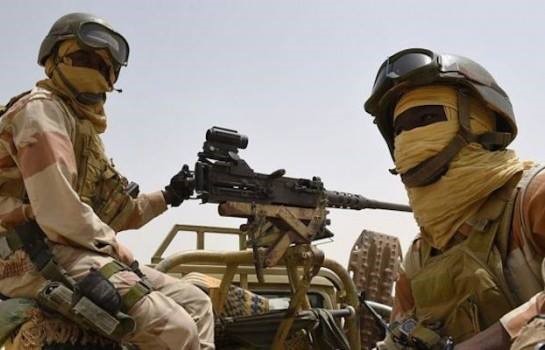In the global community, millions of lives teeter on the brink, ensnared by the unforgiving clutches of humanitarian crises. Nowhere is this struggle more poignant than in Africa, where the echoes of epidemics, civil wars, and disasters reverberate through the very fabric of existence. As we look into the heart of this profound challenge, we witness not just the endangerment of lives but the erosion of basic human dignities—access to food, shelter, water, healthcare, and education.
The toll is not merely immediate; it’s a sustained assault on the foundations of societies. The destruction of infrastructure during these crises jeopardises the long-term security and well-being of entire populations, paving the way for economic collapse and shortages of life’s essentials. The gravity of these crises demands a chorus of responses from every corner of society, a collective effort to extend a lifeline to nations in need.
Africa stands at the forefront of this global humanitarian struggle, grappling with distinctive challenges that demand immediate attention. Over 47.7 million people across the continent find themselves internally displaced, seeking refuge or asylum due to conflicts, violations of international law, and the unrelenting impact of climate change. The recent scars of COVID-19 and the Ukraine conflict have further exacerbated the situation, rendering Africa home to more than half of the world’s population in dire need of humanitarian aid.
Certain regions bear the brunt more acutely. The Horn of Africa, encompassing nations like Ethiopia, Kenya, and Somalia, reels under the relentless grip of drought, leaving 36.4 million people in desperate need of humanitarian relief. The Sahel region, including Burkina Faso and Niger, faces escalating conflict, affecting an estimated 34.8 million individuals. Simultaneously, violence surges in the Democratic Republic of the Congo, intensifying an existing crisis impacting 27 million people. These emergencies demand focused and swift responses, addressing the unique challenges faced by affected communities.
In response to these humanitarian concerns, the African Union’s Humanitarian Coordination Forum emerged as a place of hope. Crafted by humanitarian actors and co-chaired by Plan International and the UN High Commissioner for Refugees, this forum seeks to amplify collaboration, streamline efforts, and foster effective humanitarian responses across the continent. It’s a rallying cry against the impact of climate crises on food security, highlighting the urgent need for enhanced cooperation and coordination.
Africa CDC’s Symphony of Compassion
In the aftermath of Storm Daniel in Libya, a catastrophic natural disaster wreaking havoc in north-eastern Libya, the Africa CDC stood as a pillar of immediate humanitarian response. With over 11,300 lives lost and 10,100 individuals missing, a comprehensive strategy was imperative. Dr. Jean Kaseya, Director-General of the Africa CDC, collaborated with H.E. Moussa Faki, Chairperson of the African Union Commission, to orchestrate a swift and comprehensive relief effort.
Key figures converged to plan relief operations, engaging in constant communication with Libyan officials to ensure efficient assistance. A virtual discussion with Libya’s deputy prime minister underscored the urgent need for pharmaceuticals and medical supplies. Dr. Kaseya, embodying the cooperative spirit of the African Union, supported the deployment of a public health expert team and contributed $5 million USD. The Africa CDC pledged unwavering support for Libya’s recovery efforts during meetings with UNICEF and WHO at the UN General Assembly.
Challenges in the Humanitarian Arena
However, navigating the humanitarian crisis in Sudan and other affected African countries presents formidable challenges for the African Union (AU). Coordination hurdles and insufficient funding impede effective responses as millions face displacement and desperation. Despite promises, the envisioned African Humanitarian Agency (AHA) remains inactive. The AU’s heavy reliance on a mere 2% contribution from member states further hampers swift and impactful action. Urgent priorities include elevating cooperation, coordination, and skill development; linking the AHA with international organisations; designating a political advocate; and ensuring enduring support for emergency responses.
Amidst these challenges, some African leaders stand as beacons of hope, actively engaged in responding to humanitarian crises. Goodluck Jonathan’s administration in Nigeria faced the harrowing humanitarian threat posed by the Boko Haram insurgency from 2010 to 2015. Their response involved security measures, aid for refugees and internally displaced people, international collaboration, and rehabilitation and reconstruction projects.
President Nana Akufo-Addo of Ghana champions security and peace in West Africa. Ghana contributes troops to UN and ECOWAS peacekeeping operations under his leadership, reflecting a commitment to international and regional peace initiatives. His strategy, emphasising the rule of law, democracy, and humanitarian aid, showcases Ghana as a stabilising force in the region.
In the Sahelian conflicts, President Ghazouani actively addresses humanitarian effects by providing aid and supporting internally displaced people (IDPs). His comprehensive approach includes shelter provisions, supplying necessities, and collaborating with international partners to fortify relief operations.
President Ramaphosa of South Africa spearheads measures to mitigate the humanitarian effects of conflicts, actively participating in peacekeeping operations and providing troops. His administration places a strong emphasis on an inclusive strategy, addressing the root causes of disputes for long-term peace and security.
Prime Minister Abiy Ahmed of Ethiopia actively promotes regional stability in the Horn of Africa through diplomatic endeavours, involvement in regional organisations, and support for peace-focused initiatives. Ethiopia positions itself as a diplomatic force, extending efforts beyond the Ethiopia-Eritrea peace process.
As millions grapple with the looming threats of wars, diseases, and natural catastrophes, responding to humanitarian crises in Africa remains an arduous task. African leaders play a crucial role in tackling these challenges, demonstrating dedication and proactive approaches. Despite these efforts, the African Union must continue to address obstacles to handling humanitarian crises. Coordination, sufficient financing, and the establishment of the African Humanitarian Agency are pivotal to enhancing the AU’s ability to meet the urgent needs of millions of displaced and vulnerable people across the continent. Swift action is not just a necessity; it is the key to fostering long-term stability and successful solutions.


